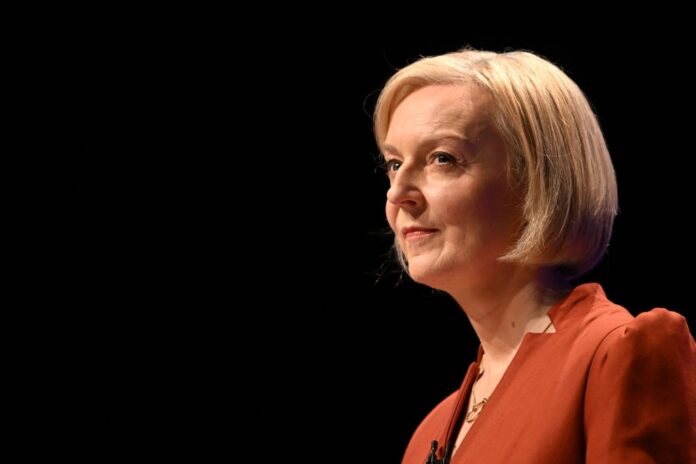Following a failed tax-cutting budget that shook financial markets and sparked a rebellion within her own Conservative Party, British Prime Minister Liz Truss announced her resignation on Thursday.
Truss served as prime minister for the shortest period of time in British history—44 days. Following the passing of Queen Elizabeth II, government business was suspended for ten days during her term as prime minister.
“We set out a vision for a low-tax, high-growth economy that would take advantage of the freedoms of Brexit,” she said.
“I recognize though, given the situation, I cannot deliver the mandate on which I was elected by the Conservative Party. I have therefore spoken to His Majesty the King to announce that I am resigning as leader of the Conservative Party.”
The party will now have a leadership election within the next week, which will be far quicker than the two months that it took this summer. According to Graham Brady, the Conservative lawmaker in charge of leadership elections and changes, he is currently considering how to incorporate Conservative MPs and other members of the larger party in the vote.
The 1922 Committee, a group of Conservative MPs without cabinet roles who can send letters of no confidence in the prime minister, was headed by Brady, who Truss met with before announcing his resignation. A spokeswoman for Downing Street told reporters Truss wanted to remain in office just before the meeting.
In the course of the meeting’s hour-long duration, 17 Conservative MPs publicly demanded that Truss resign. More than 100 people were said to have submitted letters to Brady by Thursday expressing no confidence in the prime minister.
As of 5:00 p.m., the pound was trading at $1.128, up 0.6% for the day. It is still where it was on September 22nd, prior to Truss’ market-moving budget. After initially declining, gilt yields ended the day unchanged.
Original article published here.








